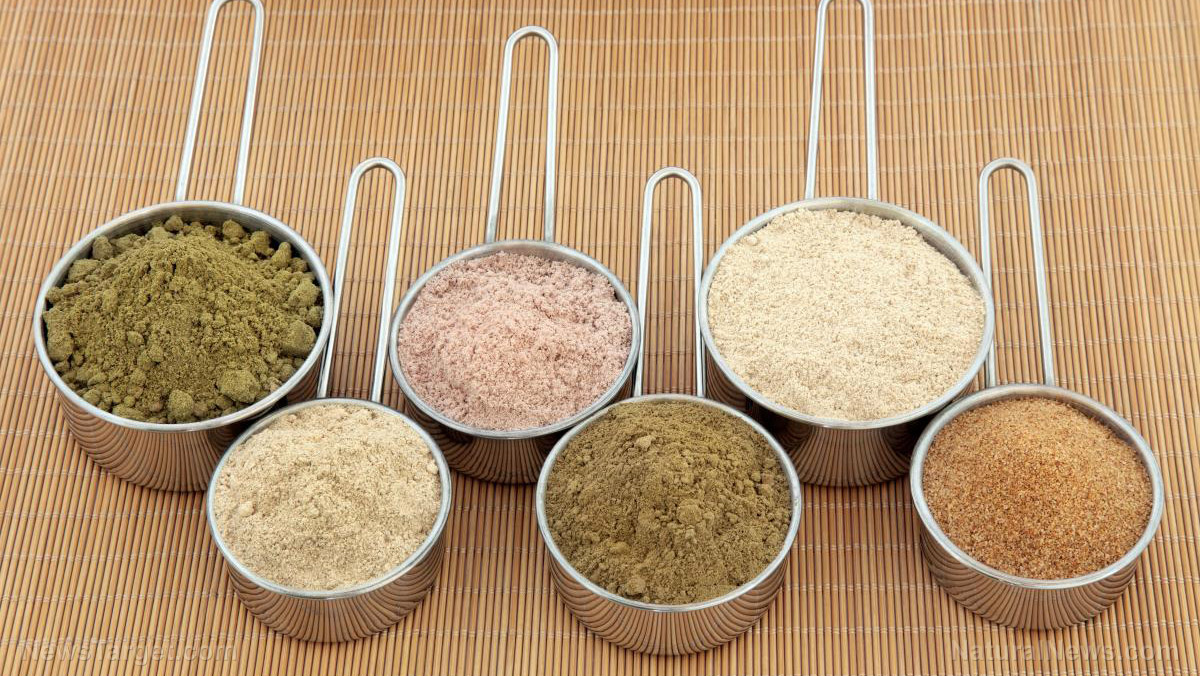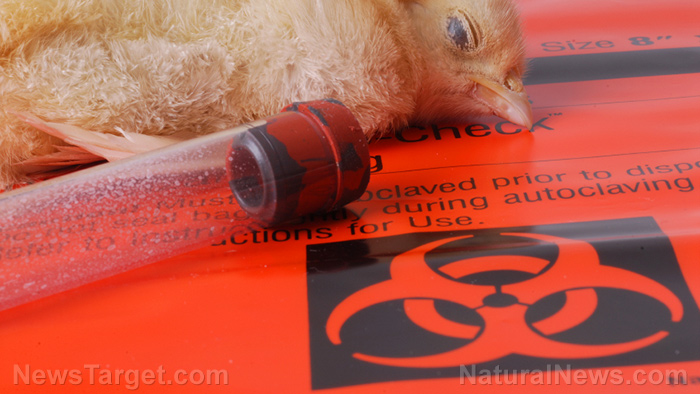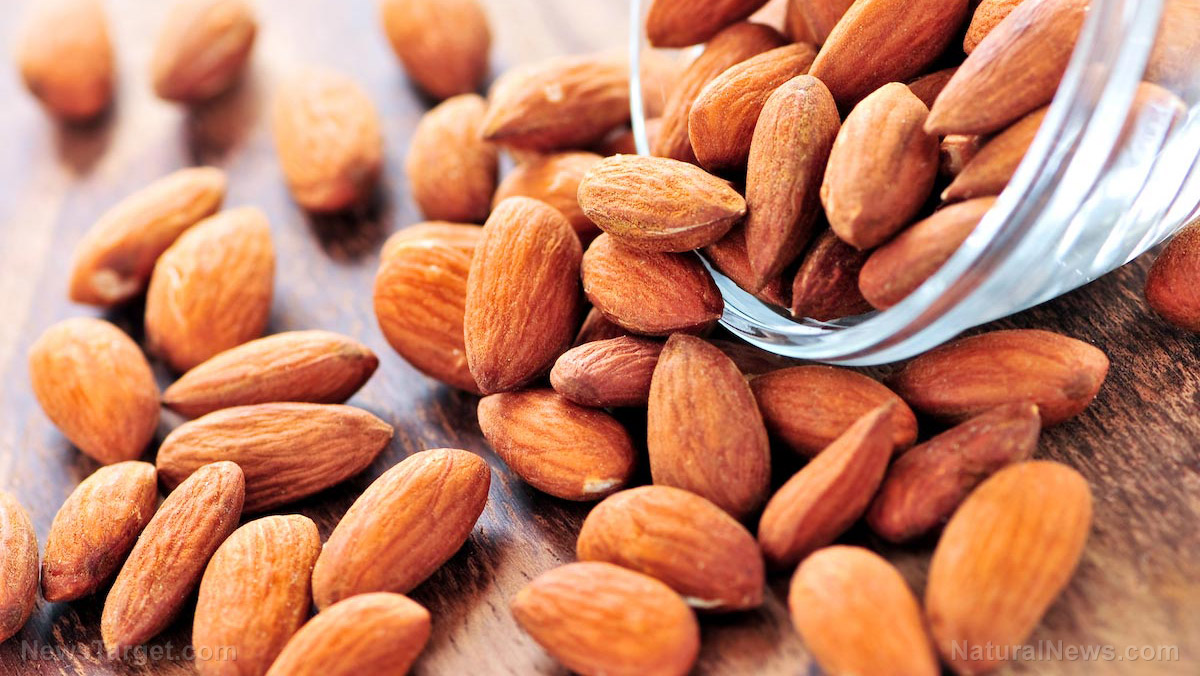 Parler
Parler Gab
Gab
Health risks linked to protein powders
Kathy McManus, a registered dietitian and the director of the Department of Nutrition at Harvard-affiliated Brigham and Women's Hospital, said experts aren't sure about the long-term effects of using protein powders, especially if they are contaminated with heavy metals. She added that there are "limited data on the possible side effects of high protein intake from supplements." Data also suggests that protein powders may cause digestive distress. For example, people with dairy allergies or who have trouble digesting lactose (milk sugar) may suffer from gastrointestinal discomfort if they use a milk-based protein powder, explained McManus. Protein powders may also be high in added sugars and calories. You should always check labels because some protein powders have little added sugar, and others have a lot, with some containing as much as 23 grams per scoop. Other protein powders can also turn your glass of milk into a beverage with more than 1,200 calories. Added sugars and calories can be bad for you because they may cause weight gain and an unhealthy spike in blood sugar. According to the American Heart Association, women should limit their intake of added sugar to 24 grams per day and 36 grams for men. The Clean Label Project, a nonprofit group, has released a report about toxins in protein powders. The research team screened 134 products for 130 types of toxins. The results revealed that many protein powders contained contaminants linked to cancer and other health conditions, such as:- Bisphenol-A (BPA, which is used to make plastic)
- Heavy metals such as arsenic, cadmium, lead and mercury
- Pesticides
Choose organic protein powders to support overall well-being
The Clean Label Project warned that protein powder can be contaminated during the manufacturing processes. Contaminants can also come from toxins in soil, which are then absorbed by plants and are made into protein powders. Ensure that you stay healthy even after a disaster strikes by using only organic protein powders that are lab-verified and free of harmful heavy metals. To support your optimal health, the Health Ranger Store is bringing you a clean, new lot of Health Ranger's Organic Hemp Juvenate. Specially formulated by the Health Ranger for optimal daily nutrition, Health Ranger's Organic Hemp Juvenate is a convenient way to enjoy the combined benefits of 11 nutritious lab-verified superfoods by blending them into one ultra-clean and nutritious superfood blend. Made with only the highest-quality organic ingredients, our delicious and nutritious superfood blend delivers a variety of beneficial vitamins, minerals and antioxidants. Health Ranger's Organic Hemp Juvenate is vegan, non-GMO, certified organic, and is extensively lab-tested for glyphosate, heavy metals and microbiology. If you need a plant-based protein, try pea protein powder. One of the best natural sources of plant-based protein, pea protein powder contains high amounts of branched-chain amino acids (BCAAs) and provides all nine essential amino acids that your body needs, including histidine, lysine and phenylalanine. Health Ranger Select Organic Pea Protein Powder is a high-quality source of plant-based protein made from 100 percent organic peas. Our highly bioavailable pea protein powder delivers 18 amino acids, as well as other nutrients, such as calcium, iron and potassium. This makes our pea protein powder an excellent supplement for building and maintaining strong muscles. With its naturally mild flavor and smooth, creamy texture, Health Ranger Select Organic Pea Protein Powder is a great addition to your post-workout smoothies or recipes like baked goods. This vegan product is gluten-free and certified Kosher and organic. It also contains no carriers or excipients and is thoroughly lab-tested for glyphosate, heavy metals and microbiology. Visit Health Ranger Store and Brighteon Store to find more clean food products. You can also go to FoodSupply.news for more stories about contaminated food and how to avoid them. Watch the video below to learn about the benefits of using pea protein powder. This video is from the Health Ranger Store channel on Brighteon.com.More related stories:
Avoid toxic contaminants like microplastics in salt by switching to Pink Himalayan Salt. Study finds MICROPLASTICS in almost 90% of protein sources, including plant-based ones. Study: Humans consume over 1,000 microplastics particles every year through TABLE SALT. Sources include: Health.Harvard.edu HealthRangerStore.com 1 HealthRangerStore.com 2 HealthRangerStore.com 3 Brighteon.comWill bird flu become the next fake pandemic that wipes out animal agriculture?
By Ethan Huff // Share
Dangers of GM corn spark major trade dispute between the U.S. and Mexico
By Cassie B. // Share
Californians now ARMING themselves after Border Patrol dumps illegals on the streets
By Ramon Tomey // Share
New York City posts record case number for bacterial disease
By News Editors // Share
About almonds: Raw or rocket fuel? Take your pick
By News Editors // Share
Governments continue to obscure COVID-19 vaccine data amid rising concerns over excess deaths
By patricklewis // Share
Tech giant Microsoft backs EXTINCTION with its support of carbon capture programs
By ramontomeydw // Share
Germany to resume arms exports to Israel despite repeated ceasefire violations
By isabelle // Share










